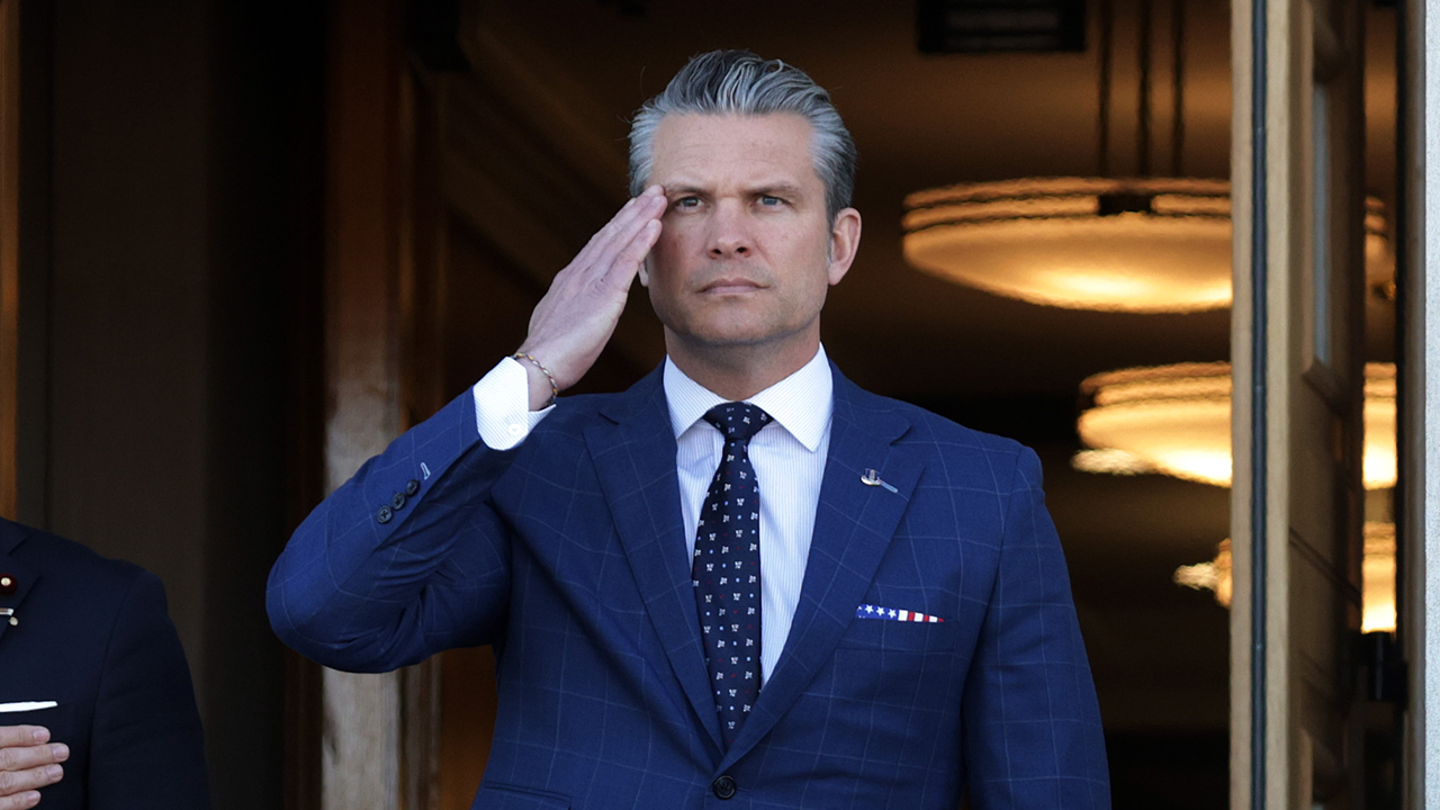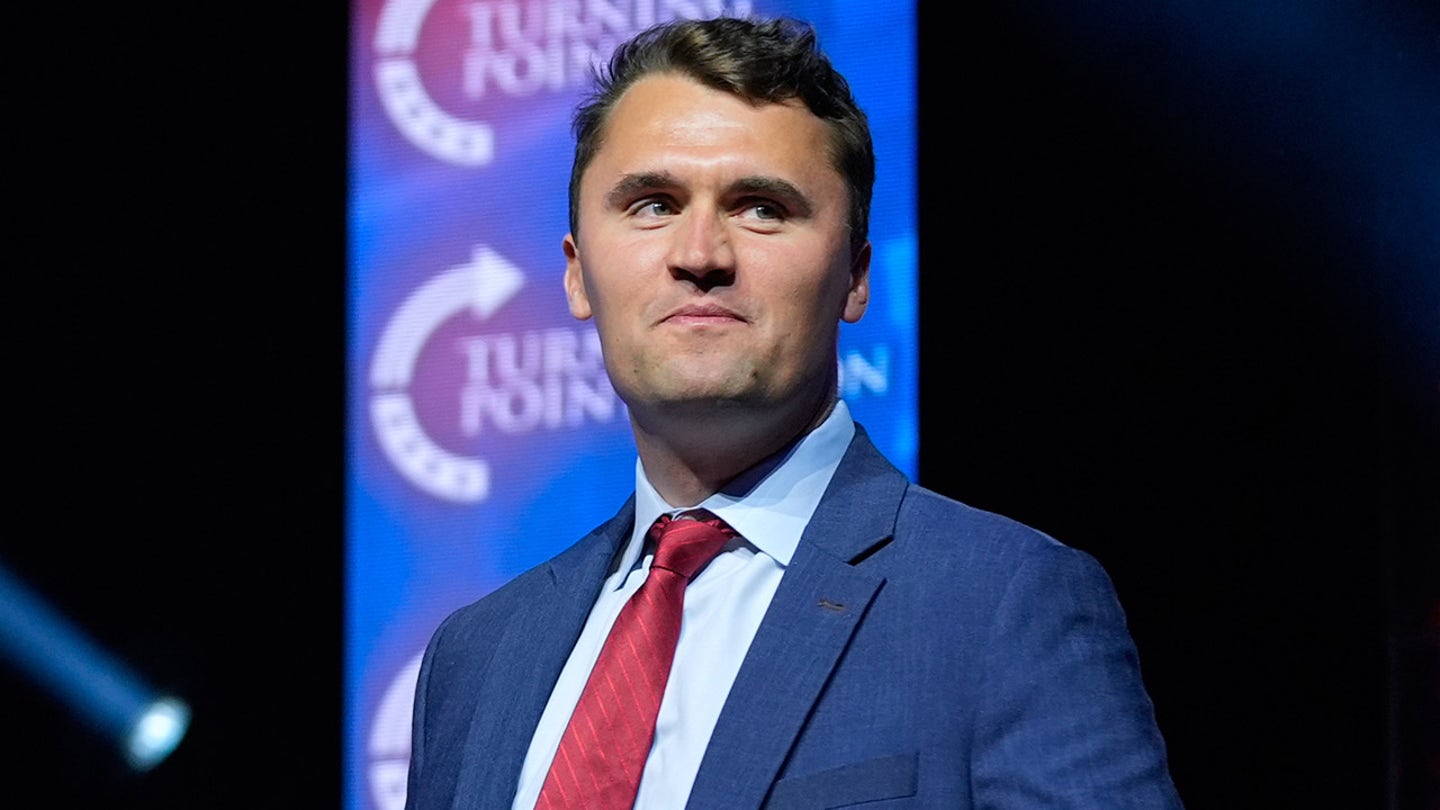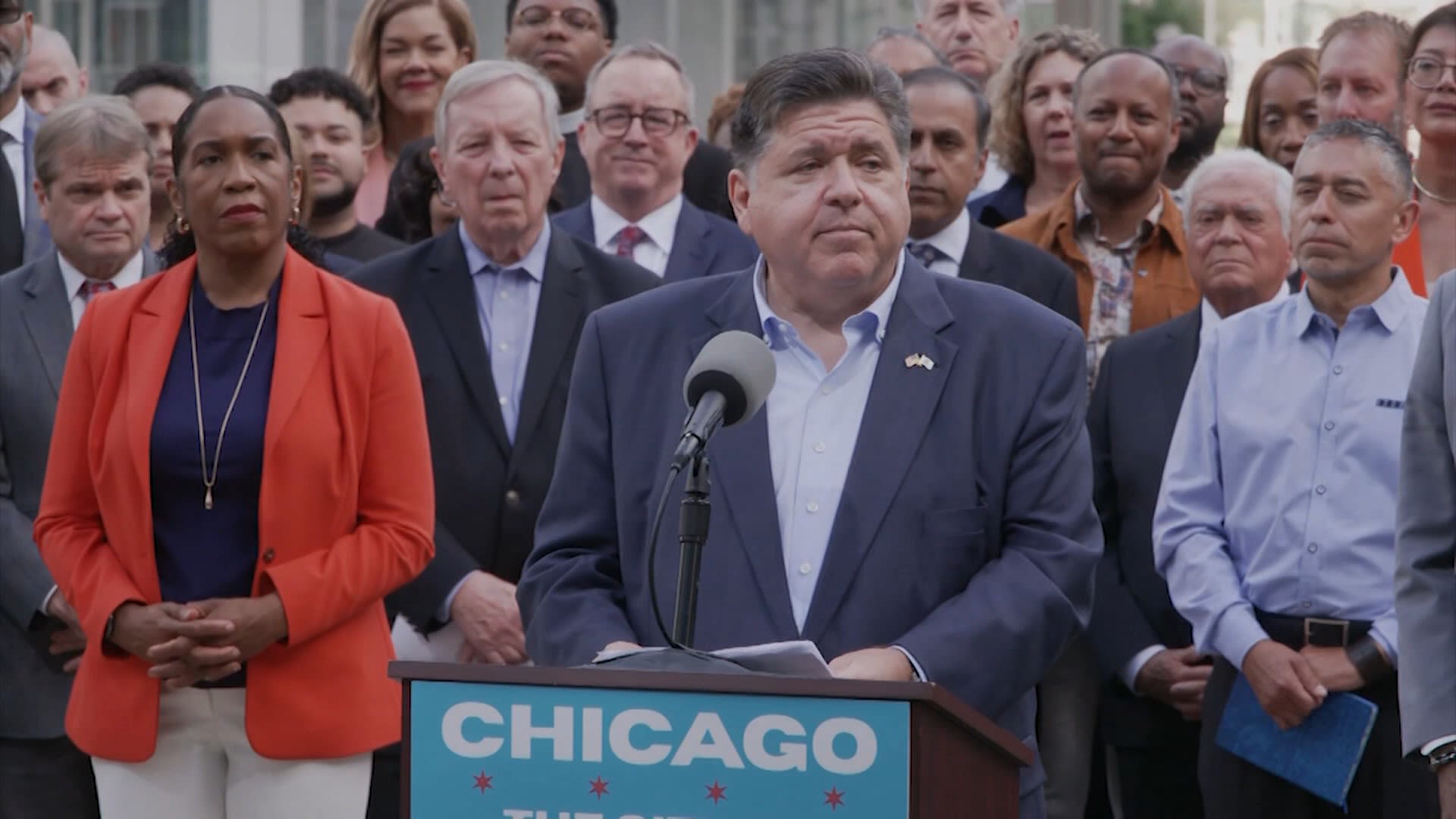
Pete Hegseth dubs Team USA goaltender the 'Secretary of Defense' after amazing Olympic save
Entities mentioned:
- Team USA: Competitive spirit, Pride, Unity
- Connor Hellebuyck: Determination, Professional pride, Competitive spirit
- Pete Hegseth: Patriotism, Recognition, Enthusiasm
- Team Canada: Competitive spirit, Pride, Determination
Article Assessment:
Credibility Score: 75/100
Bias Rating: 45/100 (Center)
Sentiment Score: 80/100
Authoritarianism Risk: 25/100 (Generally Democratic)
Bias Analysis:
The article presents a balanced view of the game, giving credit to both teams' efforts. While there's clear enthusiasm for the US win, it doesn't downplay Canada's strong performance.
Key metric: Olympic Medal Count
Let me tell you something - this story is RIDICULOUS! We're talking about a CHAMPIONSHIP performance for the ages! Connor Hellebuyck, the new 'Secretary of Defense', just pulled off a MIRACLE ON ICE level performance! This guy was an absolute WALL between the pipes, folks! He stood tall in the face of an all-out Canadian offensive blitz, making save after save like he was swatting away flies! And when the pressure was at its peak, Hellebuyck stepped up to the plate with a save that'll go down in the history books! I'm telling you right now, this is the kind of clutch play that separates the contenders from the pretenders! Team USA showed true grit and a never-say-die attitude, grinding it out until they could land that knockout punch in overtime! This is what OLYMPIC GLORY is all about, folks!

Turning Point USA's Super Bowl halftime show pays tribute to Charlie Kirk
Entities mentioned:
- Turning Point USA: Patriotism, Influence, Legacy
- Charlie Kirk: Legacy, Influence, Righteousness
- Kid Rock: Patriotism, Recognition, Loyalty
- Brantley Gilbert: Patriotism, Recognition, Self-respect
- Pete Hegseth: Loyalty, Patriotism, Recognition
Article Assessment:
Credibility Score: 70/100
Bias Rating: 75/100 (Lean Right)
Sentiment Score: 70/100
Authoritarianism Risk: 35/100 (Generally Democratic)
Bias Analysis:
The article leans right, focusing heavily on conservative figures and values. It presents the alternative halftime show in a positive light without offering contrasting viewpoints.
Key metric: Cultural Influence
Let me tell you something - this is a GAME-CHANGING play in the culture wars! Turning Point USA is stepping up to the plate with their All-American Halftime Show, and they're swinging for the fences! This isn't just a concert, folks, it's a full-court press on traditional American values. Kid Rock and Brantley Gilbert are the star players here, bringing their A-game to counterprogram against the mainstream halftime show. It's like they're running their own offensive playbook, and let me tell you, they're racking up the points with patriotic performances that are resonating with millions of viewers. The tribute to Charlie Kirk? That's a championship-level move right there, honoring their fallen teammate and rallying the base. This is the kind of fourth-quarter strategy that could shift the momentum in the ongoing battle for America's cultural identity. I'm telling you right now, this is a bold play that's got the potential to be a real game-changer in the arena of public opinion!

Trump arrives at Commanders' stadium for NFL 'Salute to Service' festivities
Entities mentioned:
- Donald Trump: Recognition, Influence, Legacy
- Washington Commanders: Professional pride, Recognition, Competitive spirit
- Josh Harris: Ambition, Power, Influence
- Pete Hegseth: Duty, Loyalty, Influence
- Karoline Leavitt: Loyalty, Duty, Influence
- Mark Clouse: Professional pride, Recognition, Duty
Article Assessment:
Credibility Score: 75/100
Bias Rating: 55/100 (Center)
Sentiment Score: 65/100
Authoritarianism Risk: 35/100 (Generally Democratic)
Bias Analysis:
The article presents facts from multiple sources, including quotes from both sides. However, it gives slightly more space to pro-Trump perspectives, tilting it just right of center.
Key metric: Presidential Approval Rating
Let me tell you something - this is a GAME-CHANGING play by Team Trump! The President is stepping up to the plate in a big way, folks. He's not just watching from the sidelines, he's right there in the trenches with our military heroes. This is a fourth-quarter move that could really shift the momentum in his favor. The Commanders are rolling out the red carpet, treating Trump like the MVP he thinks he is. But here's the kicker - Trump's looking to leave a legacy bigger than any end zone celebration. Naming rights for a new stadium? That's like getting your name on the championship trophy before the game even starts! This is the kind of bold strategy that separates the champions from the benchwarmers. I'm telling you right now, this could be the Hail Mary pass that changes everything in the political playoffs!

Hegseth fires top US general after Iran assessment that angered Trump
Entities mentioned:
- Mark Milley: Professional pride, Duty, Loyalty
- Donald Trump: Power, Control, Revenge
- Pete Hegseth: Loyalty, Ambition, Influence
- US Military: Security, Duty, Professional pride
- Iran: Self-preservation, Security, Power
Article Assessment:
Credibility Score: 55/100
Bias Rating: 60/100 (Center)
Sentiment Score: 30/100
Authoritarianism Risk: 65/100 (Authoritarian Tendencies)
Bias Analysis:
The article appears to lean slightly right, presenting the firing as a decisive action without much context. However, it doesn't overtly praise or criticize the decision, maintaining a relatively neutral tone.
Key metric: Military Readiness and Leadership Stability
As a social scientist, I analyze that this event signifies a significant disruption in the chain of command and civilian-military relations in the US. The firing of a top general over a disagreement with the President's views on Iran suggests potential politicization of military leadership. This could impact military readiness and strategic decision-making, as well as potentially erode trust between civilian leadership and military professionals. The abrupt change in high-level military personnel may lead to instability in military strategy and operations, particularly concerning Middle East policy. Furthermore, this action might be perceived as an attempt to align military leadership more closely with political objectives, potentially compromising the military's traditional role as an apolitical institution.

‘Bold’ general who led US’ ‘Midnight Hammer’ strikes on Iran ends Middle East reign
Entities mentioned:
- Gen. Michael 'Erik' Kurilla: Duty, Professional pride, Determination
- U.S. Central Command (CENTCOM): Security, Control, Influence
- Pete Hegseth: Loyalty, Patriotism, Recognition
- Adm. Brad Cooper: Duty, Ambition, Professional pride
- Iran: Self-preservation, Power, Defiance
Article Assessment:
Credibility Score: 75/100
Bias Rating: 65/100 (Lean Right)
Sentiment Score: 65/100
Authoritarianism Risk: 35/100 (Generally Democratic)
Bias Analysis:
The article leans slightly right, evident in its positive portrayal of military action and leadership. The use of quotes from conservative figures like Pete Hegseth and the emphasis on strike operations indicate a pro-military stance typical of right-leaning media.
Key metric: Military Readiness and Projection of Power
As a social scientist, I analyze that this article highlights the changing of guard in U.S. Central Command, emphasizing the strategic importance of the Middle East in U.S. military operations. The focus on Gen. Kurilla's career and recent operations against Iran and Houthi rebels underscores the ongoing tensions in the region and the U.S.'s readiness to engage in military action. The transition to Adm. Cooper suggests continuity in strategy and approach. This leadership change and the highlighted operations impact U.S. military readiness and power projection by demonstrating operational capabilities and commitment to regional allies, while also potentially escalating tensions with adversaries like Iran.

Trump targets Chicago and New York as Hegseth orders weapons for DC troops
Entities mentioned:
- Donald Trump: Power, Control, Influence
- Pete Hegseth: Loyalty, Duty, Security
- Pentagon: Control, Security, Obligation
- Ukraine: Self-preservation, Justice, Freedom
- Zohran Mamdani: Ambition, Recognition, Influence
- Marjorie Taylor Greene: Moral outrage, Righteousness, Influence
- Bernie Sanders: Justice, Moral outrage, Influence
- Kilmar Ábrego García: Self-preservation, Fear, Security
- Gavin Newsom: Competitive spirit, Ambition, Recognition
- Arnold Schwarzenegger: Justice, Legacy, Influence
- Ghislaine Maxwell: Self-preservation, Loyalty, Fear
Article Assessment:
Credibility Score: 70/100
Bias Rating: 40/100 (Lean Left)
Sentiment Score: 35/100
Authoritarianism Risk: 45/100 (Mixed/Neutral)
Bias Analysis:
The article leans slightly left, evidenced by more coverage of Democratic figures and initiatives. While it includes some Republican perspectives, the framing tends to be more critical of conservative positions.
Key metric: Political Polarization Index
As a social scientist, I analyze that this article highlights increasing political polarization in the United States. The content spans various political issues, from immigration and foreign policy to electoral politics and social issues. Trump's continued influence on Republican politics is evident, while Democratic figures are positioning themselves in opposition. The mention of partisan redistricting, sanctuary city policies, and contrasting approaches to issues like the Gaza conflict and offshore wind farms underscore deep divisions along party lines. This polarization is likely to impact governance, policy-making, and social cohesion, potentially leading to increased gridlock and decreased ability to address national challenges effectively.

Trump signs executive order establishing ‘specialized’ National Guard units to address crime in cities
Entities mentioned:
- Donald Trump: Power, Control, Legacy
- Pete Hegseth: Duty, Loyalty, Professional pride
- National Guard: Duty, Security, Control
- Rachel VanLandingham: Professional pride, Wariness, Justice
- Tammy Duckworth: Moral outrage, Justice, Duty
Article Assessment:
Credibility Score: 70/100
Bias Rating: 55/100 (Center)
Sentiment Score: 35/100
Authoritarianism Risk: 65/100 (Authoritarian Tendencies)
Bias Analysis:
The article presents multiple viewpoints, including critical perspectives, which contributes to a relatively balanced presentation. However, there's a slight lean towards emphasizing concerns and potential negatives of the executive order.
Key metric: Domestic Security and Civil Liberties Balance
As a social scientist, I analyze that this executive order represents a significant shift in the use of military forces for domestic law enforcement. The creation of 'specialized units' within the National Guard specifically for handling public order issues raises concerns about the militarization of civilian policing and potential infringement on civil liberties. The order's vague language and unclear implementation details leave room for potential misuse of these units, especially in politically motivated deployments. This move could impact the delicate balance between maintaining public safety and preserving individual freedoms, potentially leading to increased tension between federal and state authorities, as well as between the government and civilians. The focus on urban areas, particularly those led by Democrats, suggests a politicization of law enforcement efforts, which could further exacerbate political divisions and undermine public trust in both law enforcement and government institutions.

Pritzker tells Trump to stay out of Chicago: ‘You are neither wanted here nor needed here’
Entities mentioned:
- JB Pritzker: Righteousness, Moral outrage, Duty
- Donald Trump: Power, Control, Influence
- Brandon Johnson: Unity, Duty, Security
- Pete Hegseth: Duty, Loyalty, Control
Article Assessment:
Credibility Score: 75/100
Bias Rating: 40/100 (Lean Left)
Sentiment Score: 25/100
Authoritarianism Risk: 65/100 (Authoritarian Tendencies)
Bias Analysis:
The article leans slightly left, giving more prominence to Governor Pritzker's perspective and criticisms of the Trump administration. While it includes some information on the administration's plans, it primarily frames the issue through the lens of opposition to federal intervention.
Key metric: Civil Liberties and Rule of Law
As a social scientist, I analyze that this article highlights a significant conflict between state and federal authorities over the use of federal forces in American cities. The dispute centers on the balance of power between different levels of government and raises concerns about potential threats to civil liberties and democratic norms. Governor Pritzker's strong opposition to federal intervention without local consent reflects deep concerns about the erosion of local autonomy and the potential for federal overreach. This conflict has implications for the separation of powers, federalism, and the role of military forces in domestic affairs, all of which are crucial elements of the American democratic system.

Hegseth orders National Guard troops in DC to carry weapons
Entities mentioned:
- Pete Hegseth: Control, Security, Duty
- National Guard: Duty, Security, Obligation
- Donald Trump: Power, Control, Legacy
- Pentagon: Security, Control, Professional pride
- Joint Task Force - DC: Security, Duty, Control
Article Assessment:
Credibility Score: 70/100
Bias Rating: 55/100 (Center)
Sentiment Score: 35/100
Authoritarianism Risk: 65/100 (Authoritarian Tendencies)
Bias Analysis:
The article presents factual information from official sources but lacks diverse perspectives on the implications of this decision. While it doesn't overtly endorse the move, the framing subtly emphasizes the administration's security narrative without significant critical analysis.
Key metric: Domestic Security and Public Safety
As a social scientist, I analyze that this decision to arm National Guard troops in Washington, DC represents a significant escalation in the federal government's approach to domestic security. This move suggests an intensification of the administration's 'law and order' stance, potentially impacting civil liberties and the balance between security and individual freedoms. The involvement of multiple states' National Guard units indicates a nationalization of what is ostensibly a local law enforcement matter, raising questions about federalism and the appropriate use of military personnel in civilian policing roles. This development may lead to increased tensions between protesters and authorities, potentially exacerbating rather than alleviating social unrest.

Hegseth fires general whose agency’s intel assessment of damage from Iran strikes angered Trump
Entities mentioned:
- Pete Hegseth: Power, Control, Loyalty
- Donald Trump: Power, Control, Self-preservation
- Jeffrey Kruse: Professional pride, Duty, Integrity
- Nancy Lacore: Duty, Professional pride
- Milton Sands: Duty, Professional pride
- Benjamin Netanyahu: Power, Influence
- Mark Warner: Justice, Duty, Concern
- Jim Himes: Justice, Transparency, Concern
Article Assessment:
Credibility Score: 75/100
Bias Rating: 40/100 (Lean Left)
Sentiment Score: 25/100
Authoritarianism Risk: 70/100 (Authoritarian Tendencies)
Bias Analysis:
The article leans slightly left, evidenced by its critical tone towards the Trump administration's actions and the prominence given to Democratic lawmakers' concerns. However, it does present factual information and includes multiple perspectives.
Key metric: National Security and Intelligence Integrity
As a social scientist, I analyze that this article highlights a concerning trend of politicization within the US intelligence and military leadership. The firing of top officials, particularly those whose assessments contradict the administration's narrative, suggests a prioritization of loyalty over professional expertise and objective analysis. This could lead to a degradation of intelligence quality and military effectiveness, potentially compromising national security. The pattern of dismissals, coupled with budget cuts and organizational changes, indicates a systematic attempt to reshape these institutions to align with political goals rather than maintaining their independent advisory roles. This shift could have long-term implications for the credibility and functionality of US intelligence and defense capabilities.